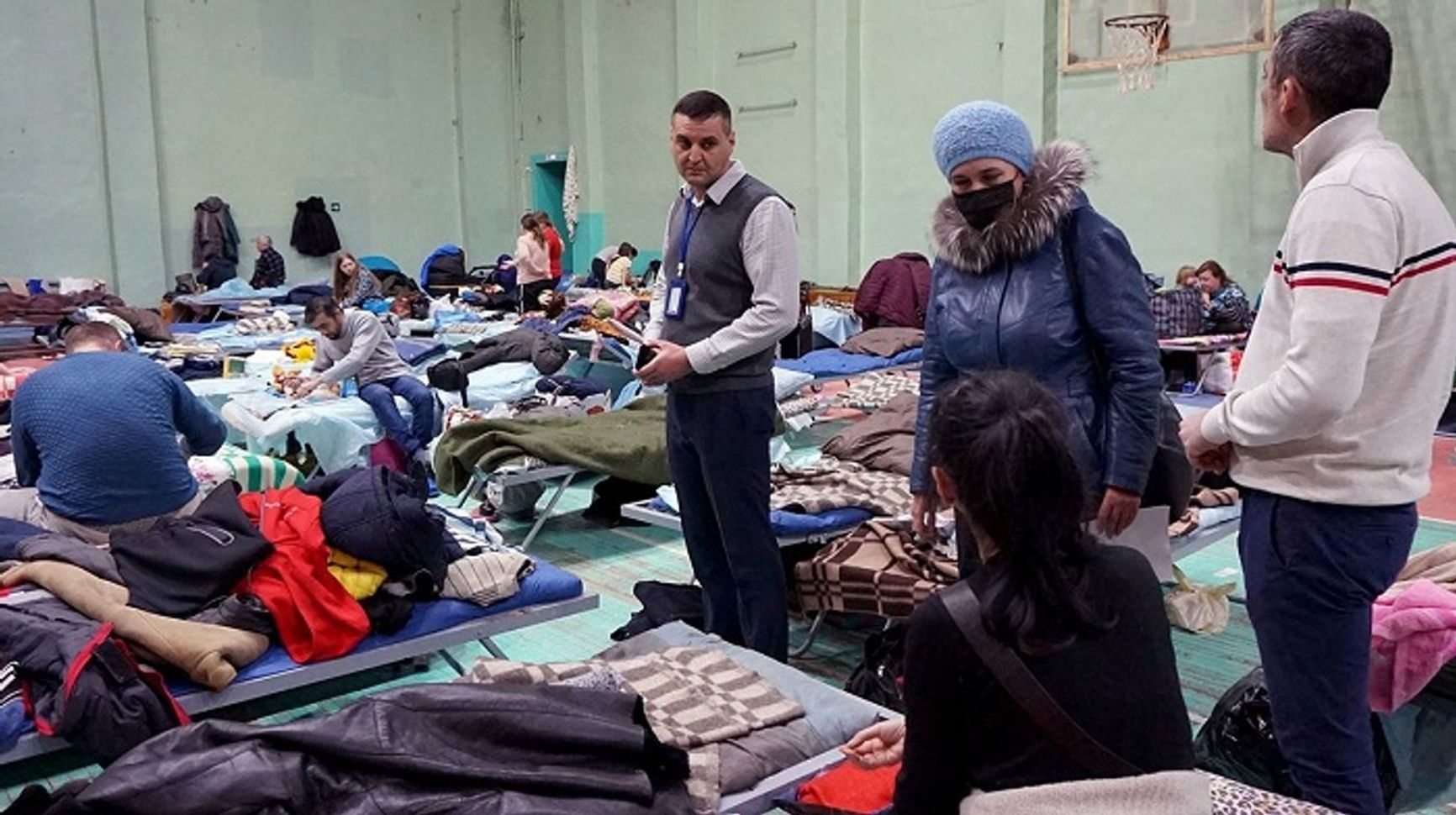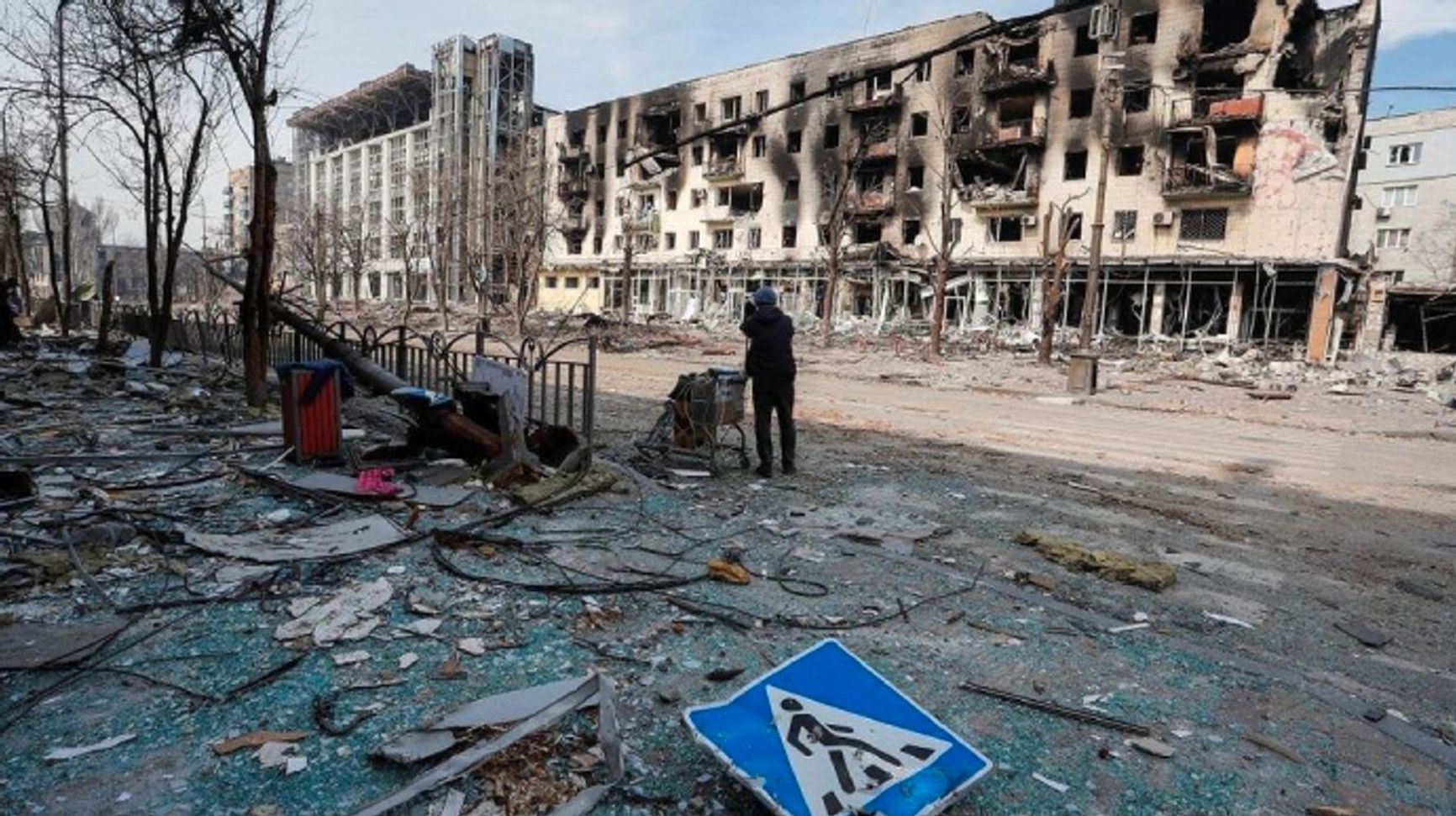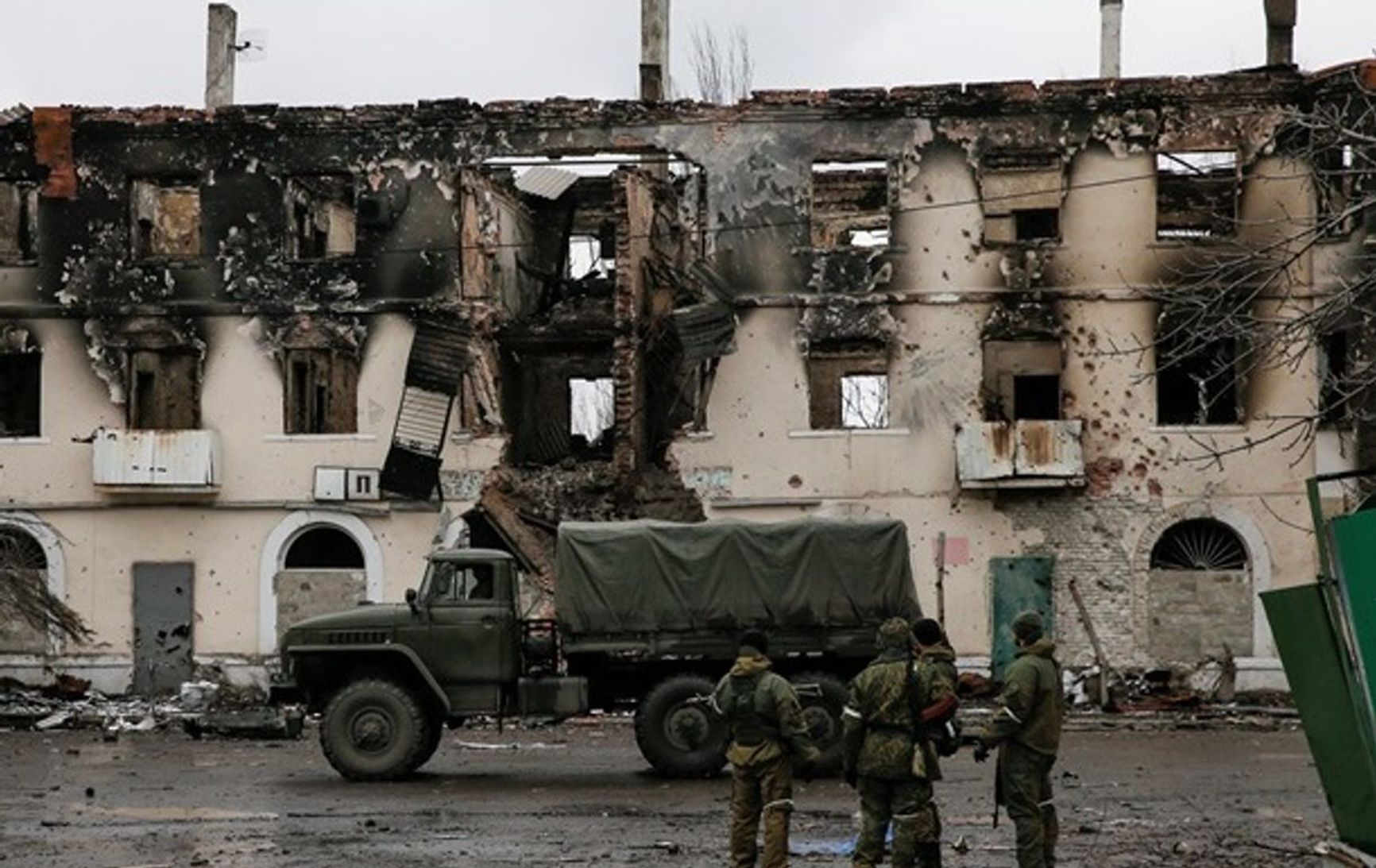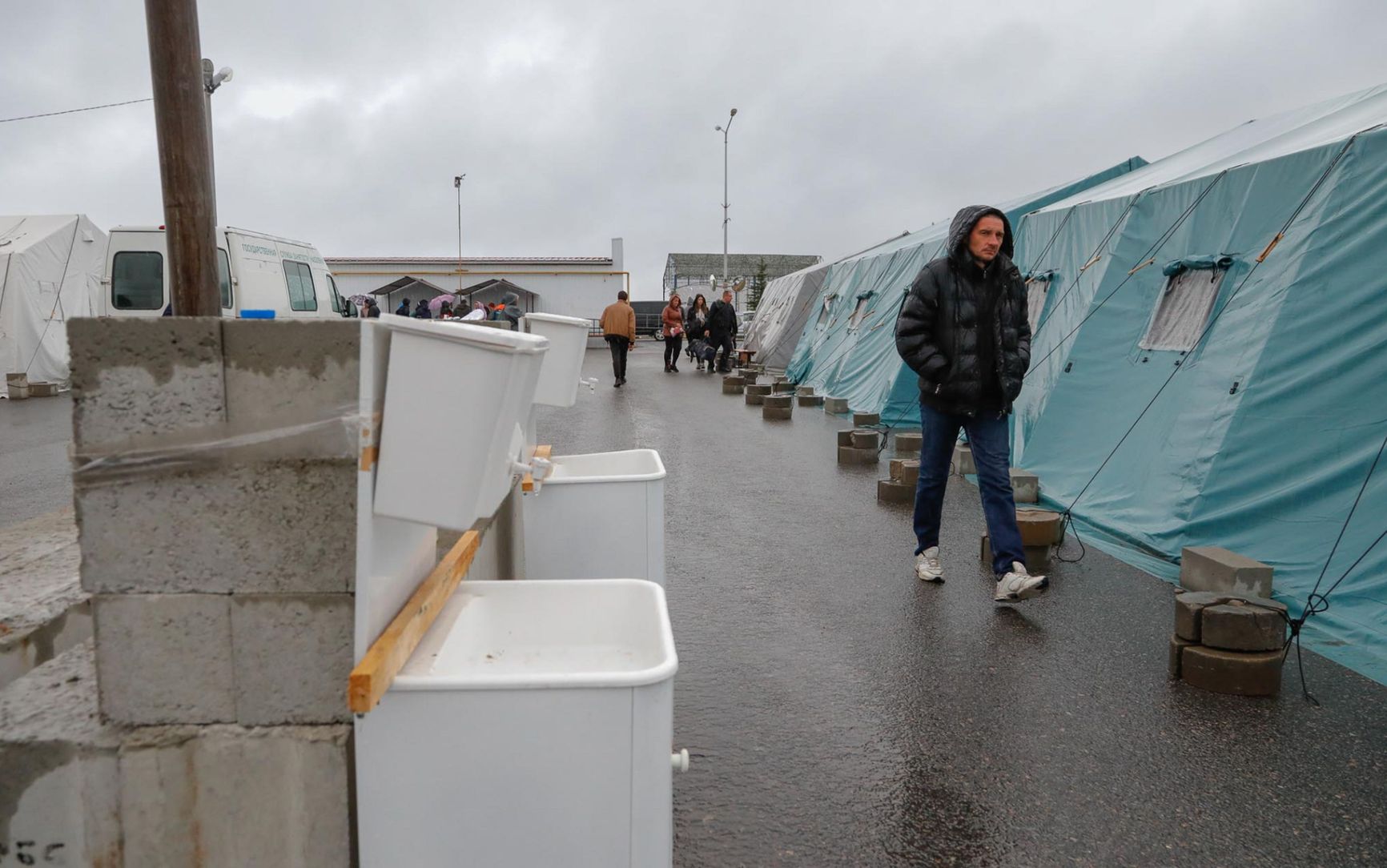

The UN reports that approximately 2.9 million Ukrainians have entered Russia since the invasion. Some were unable to escape to the other side due to being trapped behind Russian lines, while others traveled to visit relatives in Russia. There were also some who supported the Russian aggression, but even they were met with a harsh reality upon arrival. Despite their differing circumstances, all refugees faced various challenges. The Insider interviewed three women who fled Ukraine, but two of them only agreed to speak anonymously due to fear of retribution. Speaking out about the war could result in prosecution by Russian authorities or Ukrainian nationalists simply for seeking refuge in Russia.
Content
“At first, they even rationed our bread”
“At some point they started openly asking us, 'When are you leaving'“
“Some children have had noticeable developmental setbacks, but nobody cares.”
“At first, they even rationed our bread”
Maria (name changed), Mariupol
My stance has always been pro-Russia, given that none of us have any Ukrainian ancestry. In fact, my husband hailed from the Stavropol Krai. When warplanes descended to bomb Azovstal, we felt a sense of relief. It goes without saying that our desire was to flee to Russia as soon as possible.
On March 22, we departed Mariupol, but our journey took us on a detour. We headed west and spent the night before taking a roundabout route towards Novoazovsk. Upon arrival, we were directed to a checkpoint where our phones were inspected, and all the data was downloaded. Fortunately, we had no issues passing the inspection as it was clear that we supported Russia.
The temporary accommodation centers (TACs) in Rostov-on-Don were full, so because we had a car, we were directed to the town of Salsk in the Rostov region and housed in the gymnasium of a school with other refugees. We were grateful for the accommodation, but unfortunately, there was no heating for some reason. The gym was very large, and it was extremely cold in early April. We started to protest, and it was not until the third day when we left that the heating was finally turned on.
The food was also terrible. Chinese noodles and some very strange cabbage rolls with raw cabbage and raw rice. Even after a month and a half in the basement it was impossible to eat it.
Then we moved to our relatives in the Stavropol Krai. Since they were elderly and could not support us, we spent all our money in three months. Although Vladimir Vladimirovich Putin had issued a directive requiring employers to hire people with temporary asylum certificates, no one wanted to hire us. As soon as they heard we had no citizenship, they would say: “Sorry, we'll call you back.”
As soon as they heard we had no Russian citizenship, they would say: “Sorry, we'll call you back”
Dealing with the Migration Service was an especially frustrating experience. My husband and I both applied for Russian citizenship at the same time, but while he was granted a passport, my application was delayed for a month and then another month. By the time the referendum on joining Russia had already taken place, and I expected to become a Russian citizen automatically. However, even though I lived in the Stavropol Krai, neither myself nor my child were granted citizenship.
We decided to head to a big city in hopes of better luck. Our friends had fled to Voronezh and encouraged us to join them, sharing that they were doing well there. However, upon arrival, their TAC initially refused to take us in and refused to speak with us. We were directed to the Ministry of Emergency Situations, which unfortunately had no available spaces. Luckily, due to the fact that we had our child with us, we were eventually placed in a camp located in the woods 20km outside of the city. Unfortunately, our child is allergic to coniferous trees and even pine, which caused significant challenges. We had to rely on medication to manage her symptoms constantly, and I even wrote a letter to the president in hopes of being relocated elsewhere.

Temporary accommodation center for refugees in the Rostov region
The living conditions in the TAC were far from ideal. The beds were old and dilapidated, and we had to share the shower and toilet. However, the worst part was the poor quality of food and the inhumane treatment we received. At first, they even rationed our bread, serving us thin slices that were almost translucent. Only after a heated confrontation with the TAC director, where we demanded better, did they finally improve the bread supply.
One day, a neighbor arrived late for lunch and found that there wasn't enough food left. A canteen worker retrieved a bag of old, cold pasta from underneath the counter and dumped it onto her plate. Some of the pasta spilled out, so she gathered it with her hands and placed it on her plate. Bon appetite.
In general, everyone who worked there treated us as if they were doing us a huge favor. But we didn't eat at their expense! The state paid for our food.
The TAC staff treated us as if they were doing us a huge favor
The most significant conflict arose when we had to make a short trip to Mariupol. During the evacuation, we had been unable to bring my mother-in-law with us, and then she died. We had to locate her and arrange for her burial. Additionally, her apartment was deemed abandoned despite her husband being registered there. The apartment technically has five owners, including my husband's sister and her children, who had already relocated to the West; their political views are different from ours. We needed to transfer the apartment's ownership to my husband's name to prevent it from being seized. Furthermore, we hoped to obtain compensation for our family's previous residence, which had been destroyed in a fire.
We approached the TAC director and explained our situation, requesting him to reserve the room for us while we were away for some time. However, he responded with a loud and hostile outburst, stating that he would not hold the room for us. Not knowing who else to seek help from, I decided to contact the Investigative Committee. They called the director and compelled him to accept our request. As a precaution, I even took a picture of it. This ended up being useful because upon our return, they refused to allow us back into the room.
In Mariupol we didn't achieve anything. It was easier for us because we had Russian passports. Such people are treated much better than those who have Ukrainian documents. But everything works very slowly and poorly.

Mariupol after the arrival of Russian troops
Unfortunately, my mother-in-law was never found. She had died at home and had been taken away by EMERCOM officers along with all her documents, but they buried her in a mass grave without providing any information about her location. When we visited the morgue to look for her, we were shown a folder with photos of around three thousand unidentified dead women who were around her age. However, it was too overwhelming to look through all the photos, and my husband and I only managed to go through 450 and 300 photos respectively. But we still couldn't find her, and we are unsure about what to do next.
Despite our efforts, we were unable to make any progress regarding our burned apartment either. Our adult daughter, who used to live in Kyiv before the conflict and later left for Poland, had been sharing the apartment with us, but we haven't been able to locate her. Local officials informed us that all apartment owners must apply for compensation together, citing resolution No. 175 of the “DNR” adopted in the summer. With our daughter missing, we will be unable to receive any compensation. It's unclear how to proceed if some of your apartment co-owners are missing. Besides, we were unable to register anything to my husband's name due to the long queues. We'll need to visit Mariupol again in March.
Soon after our return, we finally managed to change TACs. The conditions are much better at the new place, and the child doesn't suffer from any allergies. But they don't want to let us go to Mariupol in March either.
n any case, we do not have our own place to live, and my mother-in-law's apartment is uninhabitable due to the lack of heat and water. Luckily, my husband has found a job as a chief mechanic in Voronezh, and we are considering buying some accommodation here. However, our only hope is the maternity capital, which is due for all children born after 2009. But when we tried to make arrangements at the Pension Fund, they refused to do anything without the passport of my eldest daughter, who I have lost contact with. So, I've written a complaint to the General Directorate of the Pension Fund in Moscow, hoping they can help us resolve the issue.
“At some point they started openly asking us, 'When are you leaving'“
Ksenia (name changed), Debaltsevo
On February 24th, when the conflict began, my mother, daughter, and I were among the many women and children offered evacuation to Russia from our city, which had been controlled by the “DNR” for years. Unfortunately, my husband and son were not allowed to leave due to the “DNR's” mobilization announcement. We boarded a train and traveled for four hours to Rostov-on-Don, where we saw five buses waiting for us. When I asked the driver where we were going, he didn't know and said we would be informed by phone. Eventually, we arrived at a convent in one of the nearby stanitsas.
At first we were treated nicely. Shower, toilet, rooms freshly repainted. The food was good: candy, frankfurters for kids, butter, cheese, sausage. We even had fruit. It went well as long as journalists kept visiting us and writing reports. And when they stopped coming, everything changed.
The food was delicious, while journalists kept visiting us and writing reports
In the morning, they started serving us oatmeal flakes with black spots on them. Upon closer inspection, I realized that the cereal was spoiled, with bugs crawling all over it. I immediately went to the mother superior to voice my complaint, but she feigned ignorance. Despite my complaints, the food did not improve. Lunch was a foul-smelling lamb soup, and dinner consisted of plain pasta with gravy. On one occasion, I visited their refectory during a guest's visit, and I saw salads and red fish on the table. It was a stark contrast to the food served to us and our children in the convent.
Fortunately, we were able to receive financial assistance from volunteers, which allowed us to purchase food. Many people were eager to help by donating various items such as clothing and linens. However, some of the donations did not reach us. My daughters and I observed through the window as the items were being unloaded and transported elsewhere, and we were left with only tattered sheets.
People were eager to help by donating various items, but we just got tattered sheets
At a certain point, the nuns at the convent started openly asking us, “When are you leaving? You want too much.” They constantly complained about us wasting electricity and using too much water for washing. But with many families living there, we needed to wash our clothes and linens. Seeing how they treated us, I can no longer attend church or pray. How could they behave this way towards people who are already dealing with so much grief?
I'm aware that the state allocated money for our upkeep, and I swear to god that if they had given it directly to us, we would have been better off and able to afford better food.

Debaltsevo
Once, for instance, we were served butter that had a moldy smell. When we complained to the mother superior, she called the police. As soon as they arrived they began to scold and blame us. They even mentioned that one of the officers from Rostov had died because of “our war”. A government official also arrived and started cursing at us. The volunteers advised me to say to him: “We are under the protection of the Russian Federation.” After hearing this, the official got scared. He sprang to his feet abruptly and left.
We lived in the convent for three months, then the TAC was closed, and we returned home. Our house is still standing, my husband and son are unharmed. Battles are raging on, we hear explosions, but they are far away. If they get closer, we'll have to leave again. What else can we do?
“Some children have had noticeable developmental setbacks, but nobody cares.”
Nika Karakonstantin, Kharkiv region
I resided in the village of Tsyrkuny, located near Kharkiv, towards Belgorod. On February 24, Russian troops arrived in the village as early as 5 a.m. Unfortunately, my eldest son had already left for the city to attend the lyceum, and he couldn't return as there were no buses available. He remains in Ukraine while my husband, our other four children, and I are now in Russia.
The Russian military set up a base in our village, with soldiers, equipment, and a field kitchen. However, we were not provided with food from this kitchen. Initially, the military broke into the village stores and told us to take whatever we needed. Unfortunately, I didn't have a car, and it was quite a distance to the store. I had to carry what I could on my own. But soon, we ran out of food, and my children were starving. I resorted to collecting scraps from the Russian trenches, where I found dry rations packed by the Crimean company Druzhba Narodov [Friendship of Peoples]. Ironically, all the trenches were littered with boxes bearing this slogan, “Friendship of Peoples.”
I resorted to collecting scraps from the Russian trenches, where I found dry rations packed by the Crimean company Druzhba Narodov
There was no gas or light in the village. Water was drawn from an old well with a rotating handle - it did not need electricity to work. The temperature inside our house dropped to 8 degrees Celsius, and soon all of the children caught a cold. Our youngest daughter, who was only four months old, developed pneumonia, as we later discovered.
The Russian soldiers were not unkind, but rather quiet and unresponsive. We were constantly trying to figure out when we could leave, but they would not provide any answers. During a period of heavy shelling, the soldiers would not allow refugees to leave for fear of disclosing their location to Ukrainian troops. Evacuation was not even an option.
After a month, I realized that I had to evacuate my children. The area between Tsyrkuny and Kharkiv was heavily bombed, making it impossible to go that way. Our only option was to go to Russia. The military warned us that we could leave in our cars, but they couldn't guarantee our safety. It was all a matter of luck. Fortunately, some of my fellow villagers agreed to take me and my children with them. On the way, the car in front of us was shot at, as was the one following us. We don't know who did it, but we were fortunate enough to make it through unharmed.
At the Nekhoteyevka checkpoint, which was a regular crossing point used by Belgorod residents for shopping in Kharkiv during peacetime, we crossed the border. I had all of our documents with me, including those of my children, so we got through without any difficulties. I was the first mother with four children there, and the authorities didn't know how to handle us. However, they reassured me that it would not be for long, saying “It will be over in two weeks, and you will be back home.”

Temporary accommodation in the Belgorod region
The temporary accommodation centers were full, but because my children were ill, we were taken to the regional children's hospital for a week. Being a doctor's daughter, I know many doctors, and what struck me the most was the complete apathy shown towards us. Maybe Russians were treated better, but we were not shown any sympathy. The doctors did not provide any psychological support to the children, who were in a critical condition after the events of the past month. The attitude of the hospital staff was as if we had come to them voluntarily for some reason.
What struck me the most was the complete apathy shown towards us
A week later, we were transferred to a children's camp in the town of Stroitel, located north of Belgorod. The authorities assured us that we could stay there as long as necessary. However, the very next morning, they tried to force us onto buses bound for other regions. They planned to send me and my two children to Magadan, while my 15-year-old daughter and her three-year-old sister were to be sent to Tatarstan. Through some stroke of luck, I managed to convince them to give us more time. I reached out to a friend I had studied with in Odessa, who now lived in Yekaterinburg. He offered to help us by renting an apartment in Belgorod and arranging for a Yandex cab to pick us up. I found myself in a foreign country, with no money to my name.
We received assistance from volunteers who provided us with food, and occasionally we were able to obtain provisions from the convent. Our only financial support came in the form of a one-time allowance from the Red Cross office in July. Each of us received 10,000 rubles, which I used to pay off my debts for the apartment.
We had to remain in Belgorod and were unable to leave as I wasn't certain what was going on with my son and my husband. He was unable to join us due to military restrictions. I was left unaware of their well-being. However, fortunately, both of them are alive. It wasn't until April when my husband managed to reach us, and although he had been severely beaten up, he refuses to disclose what happened to him. Currently, he has secured a job as a furniture designer that allows him to work remotely.
It wasn't until April when my husband managed to reach us. Severely beaten up, he refuses to disclose what happened to him
While I was waiting, I wasn't sitting idly by. I met volunteers. There is a non-governmental association in Belgorod called “The Tenth Circle” that helps refugees. I began working at their warehouse, sorting out humanitarian aid. I already had experience in charity in Ukraine, we helped families with many children. So I was able to set things in motion.
In the summer I got a job at a children's club. I am a pre-school teacher. Only no one in Russia recognizes my diplomas. So I am considered an uneducated person here.
I am a pre-school teacher. Only no one in Russia recognizes my diplomas
The pivotal moment came when I established an adaptation center named Teremok for refugee children. A businessman generously provided a free space, which was previously a yoga room, to accommodate the center. Various individuals contributed by gathering paints, games, and supplies.
The psychological trauma experienced by Ukrainian children has left many of them struggling, particularly those who have lost their fathers, with some even experiencing developmental setbacks. Unfortunately, no one is currently providing them with the care. They don't even go to school anymore. All Belgorod children have switched to distance learning as a safety measure. While some attend Ukrainian schools and others attend Russian schools, all their classes are conducted online. Through the center the children can meet, draw, communicate, and engage in other activities. I can see their progress.

A TAC in the Belgorod region
I work at Teremok alone and for free. And I can't find anyone among the locals who would also be willing to work with children for free at least twice a week.
Almost all my fellow villagers went to Europe. But what am I going to do there, live on welfare? And here I am needed, I help children who no one else can help.
For many Ukrainians I am a traitor: I didn't leave, I stayed, hence I am supporting the enemy. Besides, I got a Russian passport. But for me it is an instrument of survival. I have the passport, but there is a blank page where a residency registration should have been.
For many Ukrainians, I am a traitor: I didn't leave, I stayed, hence I'm supporting the enemy
I have no special love for Russia. I am neither Russian nor Ukrainian. As a Gagauzian, neither Russian nor Ukrainian is my native language. My longing to return home stems from a desire to reunite with familiar surroundings, including my land, cherished memories, and childhood games. My life was relatively normal until February 24, after which everything changed. The children's club in Kharkiv where I used to teach was destroyed by shelling.
Go back there? There could well be another offensive, could I expose my children to such danger? And here in ten months I have made many acquaintances and an important business. I'll stay just out of spite, just out of stubbornness. I will show people who don't care about refugees and children how to work. Shame on them.
Returning to my homeland poses a significant risk of encountering another offensive, which would put my children's safety in jeopardy. Moreover, during my stay here for the past ten months, I have forged numerous meaningful connections and established a crucial business. Refusing to leave now is a way of demonstrating resilience and determination. I hope to set an example for those who neglect the plight of refugees, particularly children. Shame on them.